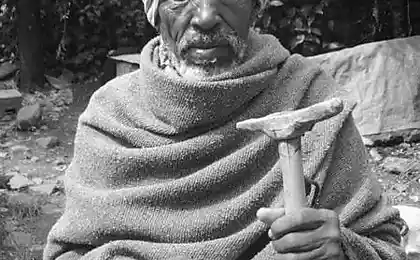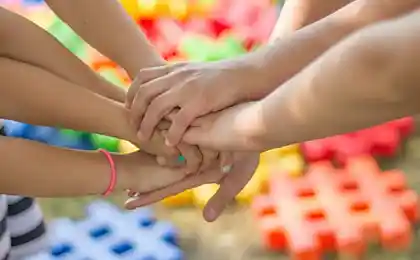231
Good people are usually evil people.
Good people are usually evil people.
To achieve love, so-called “good people” often unconsciously use strategies of behavior that are very destructive to themselves and others.
Kindness is a human quality that is expressed in a positive attitude towards people and a selfless desire to benefit others and oneself, without harming personal interests. So how can they be evil? And what is wrong with always selflessly helping others at the first call, or even without waiting for any requests?

We are talking about those who try to solve their own problems at the expense of others, even in such a noble way as help, and sometimes undesirable for the beneficiary. In contrast to the truly kind – those who respect both their own and other people’s needs, these people (let’s call them “pretty”) are the first to hurry to correct something in someone else’s failed life, they do not feel sorry for either time or energy to restore peace and goodness.
With burning eyes and rolled up sleeves, they rush to rescue, teach, heal, persuade, feed, decide, pay, regret, ask for someone.
How good they are! They feel important and influential, they are content with themselves and genuinely don’t understand why those they helped don’t shine with happiness. And now the rescued want something else. And then again and again! There is no peace and satisfaction, there is anxiety for their “wards” and for the entire imperfect world. And how often it happens that you try, try, and they do not appreciate, offend, accuse. It's annoying and angry. You can cope with these unpleasant feelings by again engaging in someone who is worse off.But anger at oneself only accumulates and makes itself felt in the form of symptoms of diseases or comes out in the form of breakdowns on loved ones, as well as in feelings of guilt and self-flagellation.
By doing things for others, correcting and filling their lives, the good ones shut themselves off from the picture of their own life, especially the part in which they do not like themselves. It takes the lion’s share of energy to hide unpleasant feelings. Part is spent on suppression and control over unkind feelings, part - on useless actions (noisy, talkativeness, overactivity). And all in order to create the illusion of a positive image. Hence apathy and powerlessness.
How do you become kind and not kind?
You have to start with yourself. We all need a kind, respectful, attentive attitude towards ourselves. But in fact, we try to get it at the expense of other people, using their imperfections and inadequacies for our own purposes. Respect for oneself does not begin with actions for others, but with attention to oneself and recognition of one’s needs. Our true needs are not good or bad, not big or small, they show us our uniqueness. And uniqueness is what makes us valuable and irreplaceable to others.
Stop being afraid of yourself. We are afraid to know what we really want. We're afraid we can't, or it's bad, or we need to want something else. Included are assessments and negative experiences (past, often childhood) about what will happen if I allow myself what I want. And it's not clear how? We are afraid to get to know ourselves because we are not used to it. We are more focused on the desires and needs of others than our own. Other people’s lives become benchmarks, and by becoming kind to someone, we attach ourselves to someone else’s model, alienating ourselves from our own. This is an example of an evil attitude towards oneself.
Don't be afraid to ask and refuse. By understanding our needs, we learn to interact with the world ecologically. For example, you find yourself in need of support. Especially when you’re in transition or starting something new. You can support yourself and motivate yourself very well by remembering those times when you did something well. It doesn't matter what, it's important to get back into that state. Take a fresh look at the situation. If you can not turn yourself on or keep in this energy state, ask for help.
Conditions can infect each other. Emotions are contagious, both good and bad. That’s why you can ask someone who has the desire to be with you and support you. Here it is important to ask for support and be prepared for the fact that the one you turned to may refuse you. He has every right. You have every right to ask someone else.
By asking for help and support, you are doing another person a favor. You recognize its uniqueness in that it has something that you don’t have at the moment. But since feelings and emotions are private property, we decide how to use them (consciously or unconsciously). We can give our feelings to others, or we can not give them. If some feelings are in excess, they form personal qualities, you want to share this. No reason, no harm to yourself. But if they are in deficit, at all or at the moment, giving them to another (sacrificing, in essence), we create tension in the relationship. Tension leads to conflict and misunderstanding.
Therefore, one must be able to ask, not demand, and be able to refuse without guilt and shame. Find balance in the relationship, but you always open the account in this balance to your kind and attentive attitude towards yourself. There's no selfishness in that. Because most of our needs and experiences are very simple and based on the survival instinct. The most difficult thing is to separate feelings from thoughts and take responsibility for your well-being. But if this happens, then inevitably self-esteem grows and other people’s contribution to your life is recognized, gratitude and respect appear.
193740
Good people know how to respect, recognize and thank others. When revealing your kindness in all manifestations, it is better to be an observer than an executor. Haste, fuss and too much activity is more about fear (except in critical situations where you need to act quickly).
The ability to observe, with trust and patience, gives you a chance to fully manifest the situation, and you and all participants – to find the best solution instead of artificially creating conditions for the most “good” scenario. Do not use your help to go where you are not asked, let people live their own experience and find a solution without your participation. You didn't? So they can do it on their own. Not as right as you'd like? Well, learn to be an observer. Only kind.
Learn to wait. Each trial has its own deadline. Be kind to yourself not to demand or blame yourself for something that is not yet ripe. A child who learns letters cannot be accused of reading slowly. We need to learn the letters first. If you love taking care of others, that’s great! But there is probably a personal need for it. Sometimes taking care of someone is easier than taking care of yourself. You will need time to figure out what kind of care you need and how to give it to yourself.It will take time to learn to take care of yourself. First from yourself, then from other people. It will take time for this to become the norm. This new norm creates a feeling of safety and comfort inside.People with this feeling are very kind.
Don't expect anything back.When you want to share what you are full of, you want to find someone who needs it. It’s good when there is such a meeting in space and everything is mutual. But if good intentions are to take control of another person’s life, that’s the road to hell. Example: Calls and text messages that take away the brain are presented as attention and interest, but in fact it is control. In exchange for such control comes the expectation of calm and trust (I call you to be calm for you and to know that you are doing well).
There are no bad feelings, there is a wrong attitude towards them and misuse of them. “My kindness will destroy me,” say people who see themselves and show the world the part they call kindness. Where does everything else go? Where are the other qualities and other conditions? In order to get a beautiful melody, you need to combine different notes. One or two notes is boring and nothing. Being alive, sincere, real is the art of living your own life, respecting and accepting the will of others.
It’s really hard to be kind to yourself when you have to admit your imperfections. Try not to judge yourself for being afraid of something. We need fear to protect our integrity. What holes do you need to patch in order to feel more secure, whole? What do you have to do to do that?
Try not to avoid or reject yourself in sadness. By understanding ourselves in this state, we learn to appreciate what we have. Sometimes it is more useful to show your anger and outrage, to show your teeth than to be afraid of how you will react. You never know the reaction of another, you imagine it, but you don’t know it. You need to get to know yourself as best as possible in your reactions and learn how to use them, environmentally friendly and preferably by everyone. Every emotional state has its own meaning. By consciously changing our attitude towards our feelings, we change meanings.
You can be supportive and supportive of others if you don’t sacrifice anything. The more attentive and positive you treat yourself in different manifestations, the more kind people in your environment. No one will need to be saved, they will cope with their lives.
Author: Lesya Kovalchuk
P.S. And remember, just by changing your consciousness – together we change the world!
Source: nv.ua/style/blogs/dobrye-ljudi-obychno-zlye-blog-psihologa-608112.html
To achieve love, so-called “good people” often unconsciously use strategies of behavior that are very destructive to themselves and others.
Kindness is a human quality that is expressed in a positive attitude towards people and a selfless desire to benefit others and oneself, without harming personal interests. So how can they be evil? And what is wrong with always selflessly helping others at the first call, or even without waiting for any requests?

We are talking about those who try to solve their own problems at the expense of others, even in such a noble way as help, and sometimes undesirable for the beneficiary. In contrast to the truly kind – those who respect both their own and other people’s needs, these people (let’s call them “pretty”) are the first to hurry to correct something in someone else’s failed life, they do not feel sorry for either time or energy to restore peace and goodness.
With burning eyes and rolled up sleeves, they rush to rescue, teach, heal, persuade, feed, decide, pay, regret, ask for someone.
How good they are! They feel important and influential, they are content with themselves and genuinely don’t understand why those they helped don’t shine with happiness. And now the rescued want something else. And then again and again! There is no peace and satisfaction, there is anxiety for their “wards” and for the entire imperfect world. And how often it happens that you try, try, and they do not appreciate, offend, accuse. It's annoying and angry. You can cope with these unpleasant feelings by again engaging in someone who is worse off.But anger at oneself only accumulates and makes itself felt in the form of symptoms of diseases or comes out in the form of breakdowns on loved ones, as well as in feelings of guilt and self-flagellation.
By doing things for others, correcting and filling their lives, the good ones shut themselves off from the picture of their own life, especially the part in which they do not like themselves. It takes the lion’s share of energy to hide unpleasant feelings. Part is spent on suppression and control over unkind feelings, part - on useless actions (noisy, talkativeness, overactivity). And all in order to create the illusion of a positive image. Hence apathy and powerlessness.
How do you become kind and not kind?
You have to start with yourself. We all need a kind, respectful, attentive attitude towards ourselves. But in fact, we try to get it at the expense of other people, using their imperfections and inadequacies for our own purposes. Respect for oneself does not begin with actions for others, but with attention to oneself and recognition of one’s needs. Our true needs are not good or bad, not big or small, they show us our uniqueness. And uniqueness is what makes us valuable and irreplaceable to others.
Stop being afraid of yourself. We are afraid to know what we really want. We're afraid we can't, or it's bad, or we need to want something else. Included are assessments and negative experiences (past, often childhood) about what will happen if I allow myself what I want. And it's not clear how? We are afraid to get to know ourselves because we are not used to it. We are more focused on the desires and needs of others than our own. Other people’s lives become benchmarks, and by becoming kind to someone, we attach ourselves to someone else’s model, alienating ourselves from our own. This is an example of an evil attitude towards oneself.
Don't be afraid to ask and refuse. By understanding our needs, we learn to interact with the world ecologically. For example, you find yourself in need of support. Especially when you’re in transition or starting something new. You can support yourself and motivate yourself very well by remembering those times when you did something well. It doesn't matter what, it's important to get back into that state. Take a fresh look at the situation. If you can not turn yourself on or keep in this energy state, ask for help.
Conditions can infect each other. Emotions are contagious, both good and bad. That’s why you can ask someone who has the desire to be with you and support you. Here it is important to ask for support and be prepared for the fact that the one you turned to may refuse you. He has every right. You have every right to ask someone else.
By asking for help and support, you are doing another person a favor. You recognize its uniqueness in that it has something that you don’t have at the moment. But since feelings and emotions are private property, we decide how to use them (consciously or unconsciously). We can give our feelings to others, or we can not give them. If some feelings are in excess, they form personal qualities, you want to share this. No reason, no harm to yourself. But if they are in deficit, at all or at the moment, giving them to another (sacrificing, in essence), we create tension in the relationship. Tension leads to conflict and misunderstanding.
Therefore, one must be able to ask, not demand, and be able to refuse without guilt and shame. Find balance in the relationship, but you always open the account in this balance to your kind and attentive attitude towards yourself. There's no selfishness in that. Because most of our needs and experiences are very simple and based on the survival instinct. The most difficult thing is to separate feelings from thoughts and take responsibility for your well-being. But if this happens, then inevitably self-esteem grows and other people’s contribution to your life is recognized, gratitude and respect appear.
193740
Good people know how to respect, recognize and thank others. When revealing your kindness in all manifestations, it is better to be an observer than an executor. Haste, fuss and too much activity is more about fear (except in critical situations where you need to act quickly).
The ability to observe, with trust and patience, gives you a chance to fully manifest the situation, and you and all participants – to find the best solution instead of artificially creating conditions for the most “good” scenario. Do not use your help to go where you are not asked, let people live their own experience and find a solution without your participation. You didn't? So they can do it on their own. Not as right as you'd like? Well, learn to be an observer. Only kind.
Learn to wait. Each trial has its own deadline. Be kind to yourself not to demand or blame yourself for something that is not yet ripe. A child who learns letters cannot be accused of reading slowly. We need to learn the letters first. If you love taking care of others, that’s great! But there is probably a personal need for it. Sometimes taking care of someone is easier than taking care of yourself. You will need time to figure out what kind of care you need and how to give it to yourself.It will take time to learn to take care of yourself. First from yourself, then from other people. It will take time for this to become the norm. This new norm creates a feeling of safety and comfort inside.People with this feeling are very kind.
Don't expect anything back.When you want to share what you are full of, you want to find someone who needs it. It’s good when there is such a meeting in space and everything is mutual. But if good intentions are to take control of another person’s life, that’s the road to hell. Example: Calls and text messages that take away the brain are presented as attention and interest, but in fact it is control. In exchange for such control comes the expectation of calm and trust (I call you to be calm for you and to know that you are doing well).
There are no bad feelings, there is a wrong attitude towards them and misuse of them. “My kindness will destroy me,” say people who see themselves and show the world the part they call kindness. Where does everything else go? Where are the other qualities and other conditions? In order to get a beautiful melody, you need to combine different notes. One or two notes is boring and nothing. Being alive, sincere, real is the art of living your own life, respecting and accepting the will of others.
It’s really hard to be kind to yourself when you have to admit your imperfections. Try not to judge yourself for being afraid of something. We need fear to protect our integrity. What holes do you need to patch in order to feel more secure, whole? What do you have to do to do that?
Try not to avoid or reject yourself in sadness. By understanding ourselves in this state, we learn to appreciate what we have. Sometimes it is more useful to show your anger and outrage, to show your teeth than to be afraid of how you will react. You never know the reaction of another, you imagine it, but you don’t know it. You need to get to know yourself as best as possible in your reactions and learn how to use them, environmentally friendly and preferably by everyone. Every emotional state has its own meaning. By consciously changing our attitude towards our feelings, we change meanings.
You can be supportive and supportive of others if you don’t sacrifice anything. The more attentive and positive you treat yourself in different manifestations, the more kind people in your environment. No one will need to be saved, they will cope with their lives.
Author: Lesya Kovalchuk
P.S. And remember, just by changing your consciousness – together we change the world!
Source: nv.ua/style/blogs/dobrye-ljudi-obychno-zlye-blog-psihologa-608112.html
Larry Smith: Why you will fail to have a great career
Doing good, don't expect good: the 8 Golden rules of communication























